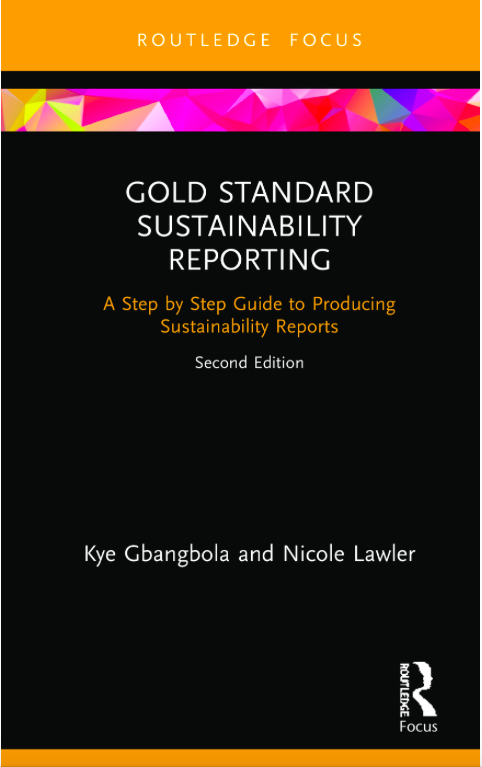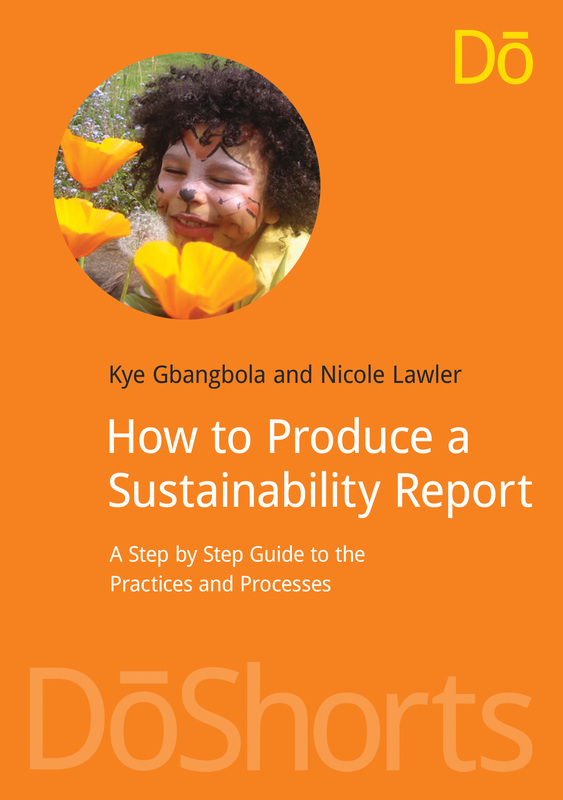
Rio de Janeiro 15 June 2012 - leading business organizations are calling on governments to commit to concrete action at the Rio+20 Conference, encouraging all companies to start measuring and reporting sustainability performance and impacts. This, they say, will enable business to accelerate sustainability towards a Green Economy.
The Global Reporting Initiative (GRI), the World Business Council for Sustainable Development (WBCSD) and the Brazilian Business Council for Sustainable Development (CEBDS) are urging heads of delegations, ministers and heads of state to act now to make sustainability reporting standard practice – in particular, to encourage all listed and large (public and private) companies to report their sustainability performance on a report or explain basis.
Business plays a vital role in speeding up the transition towards a green economy. Realizing that there are risks and potentially competing impacts to consider, the transparent measurement and reporting of sustainability impacts of corporate activities must become standard business practice.
Ernst Ligteringen, Chief Executive of the Global Reporting Initiative (GRI): “For the past 15 years, leading companies have been reporting on their sustainability performance, benefiting the companies themselves, as well their diverse stakeholders and society. Today, thousands of companies release a sustainability report, and the number continues to grow year on year. At the 2002 Johannesburg conference, this practice was commended; the opportunity in Rio is to adopt policy to make this standard practice.”
Peter Bakker, president WBCSD: “Sustainability reporting is a strategic tool for companies big and small. What gets measured gets managed. The combination of the ever growing pressures on the availability and price of resources and the necessary move towards pricing externalities means that smart companies will want to understand their impacts. The question in Rio+20 is how can governments help accelerate the development and adoption of these tools and practices.”
Mrs. Marina Grossi, executive president of CEBDS: “We are convinced that reporting will trigger a strong multiplying process. The weight of big companies on their supply chain will spread this practice among its suppliers, providing benefits to a wide stakeholders network – that are also encouraged to follow their steps. Also, ‘Report or Explain’ presents an extra layer of accountability to those stakeholders and easiness to companies to adapt to this new scenario.”
Call for global policy framework
GRI, WBCSD and CEBDS are also calling for UN Secretary General Ban Ki-Moon to develop a process and a timeframe to establish a global policy framework to create the appropriate enabling conditions for more widespread sustainability reporting. In February this year, Ban Ki-moon stated that business and investors have a true opportunity to show leadership and contribute to the goal of mainstreaming corporate sustainability: “Let us work together to forge a global policy framework for disclosing such information – and for explaining why companies do not.”
This policy framework can be built on existing reporting initiatives. GRI produces a comprehensive sustainability reporting framework that is widely used around the world. WBCSD is the leading organization on sustainable development in business, and CEBDS is the Brazilian branch of the WBCSD network. Many WBCSD and CEBDS member companies are among the thousands worldwide already reporting their sustainability performance using the GRI Guidelines. In addition, the WBCSD has (co)developed reporting standards for Greenhouse Gases and Water, and the International Integrated Reporting Council has begun work on the linkages between an organization’s strategy, governance and financial performance and the social, environmental and economic context within which it operates.
Stock exchanges respond
As well as governments, stock exchanges have a role as regulators in encouraging more companies to be transparent and report their sustainability performance. Sao Paolo stock exchange BM&FBOVESPA and the Johannesburg Stock Exchange (JSE) are already working with their member companies to help business be more transparent, and have responded positively to today’s call.
Sonia Favaretto, Director Sustainability at BM&F BOVESPA, said: “BM&FBOVESPA understands how transparency in the provision of information is fundamental for markets to function well. Sustainability reports play a crucial role in this context. Our point of reference for this type of report is the GRI methodology. For this reason, at Rio+20 and in partnership with GRI we shall launch ‘Report or Explain’ in sustainability reports and similar. We believe that the publication of sustainability reports is a powerful instrument for the transformation of corporate management and culture.”
"Companies and investors face a new value reality given the challenges of sustainability. The JSE aims to positively influence our clients to build resilience and longevity, and to encourage increased transparency through our listing requirements and tools such as the SRI Index Series, and we support global efforts to promote transparency on material issues across financial, environmental and social dimensions, including through a report or explain approach to reporting," said Corli Le Roux, Head of the SRI Index and Sustainability at the Johannesburg Stock Exchange.
Lucy Goodchild
Press & Communications Manager
Global Reporting Initiative
Tel: +31 (0)20 531 0067
Out of office hours: +31 (0)6 303 99 531
Email: [email protected]
Notes to Editors:
1. Ban Ki-moon speech: 16 February at the KPMG summit in New York entitled ‘Business Perspective for Sustainable Growth’.
2. About the Global Reporting Initiative
The Global Reporting Initiative (GRI) produces a comprehensive Sustainability Reporting Framework that is widely used around the world, to enable greater organizational transparency. The Framework, including the Reporting Guidelines, sets out the Principles and Indicators organizations can use to report their economic, environmental, and social performance. GRI is committed to continuously improving and increasing the use of the Guidelines, which are freely available to the public.
GRI, a multi-stakeholder foundation, was set up in the US in 1997 by CERES and the United Nations Environment Program (UNEP). In 2002, GRI moved its central office to Amsterdam, where the Secretariat is currently located. GRI has regional ‘Focal Points’ in Australia, Brazil, China, India and the USA, and a worldwide network of 30,000 people.
Website: www.globalreporting.org
3. About the World Business Council for Sustainable Development (WBCSD)
The World Business Council for Sustainable Development is a CEO-led organization of forward-thinking companies that galvanizes the global business community to create a sustainable future forbusiness, society and the environment. Together with its members, the council applies its respected thought leadership and effective advocacy to generateconstructive solutions and take shared action. Leveraging its strong relationships with stakeholders as the leading advocate for business, the council helps drive debate and policy change in favor of sustainable development solutions.
The WBCSD provides a forum for its 200 member companies - who represent all business sectors, all continents and a combined revenue of more than $7 trillion - to share best practices on sustainable development issues and to develop innovative tools that change the status quo. The Council also benefits from a network of 60 national and regional business councils and partner organizations, a majority of which are based in developing countries.
www.wbcsd.org
For more information, please contact
Peter Paul vande Wijs, Managing Director, Communications
[email protected]
+41 22 839 3141
To be added to the WBCSD press distribution, please e-mail WBCSD:[email protected]
Follow us on Twitter.
4. CEBDS is a non-profit civil association founded in 1997 to promote sustainable development among Brazilian-based companies. Gathering the biggest businesses groups in the country, CEBDS is the Brazilian branch in WBCSD network.
The first Brazilian institution to talk about sustainability using the Triple Bottom Line concept, CEBDS is today a reference in sustainability vanguard both for companies and partners and governments. It is recognized as business sector’s main representative towards a revolutionary changing process: transform the traditional economical model into a new paradigm.
For more information, please contact
Eduardo Nunes, Communication Manager
[email protected]
+55 21 2483-2250















 RSS Feed
RSS Feed
